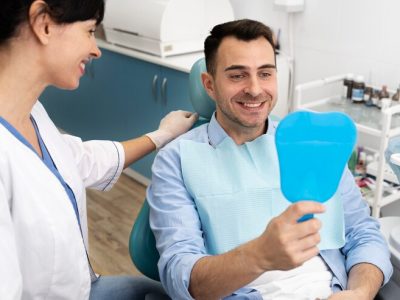Can PTSD Be Cured? Understanding The Journey To Recovery

Post-Traumatic Stress Disorder (PTSD) is a complex mental health condition that can have a profound impact on an individual’s life. It often arises as a result of experiencing or witnessing a traumatic event, leaving a lasting imprint on the mind.
Many individuals grappling with PTSD wonder if there is a cure and if it’s possible to completely alleviate the symptoms and reclaim a sense of normalcy.
In this article, we will delve into the question: Can PTSD be cured? Exploring various aspects of the journey to recovery, we’ll examine the available treatments, their efficacy, and the factors that contribute to a comprehensive healing process.
Understanding PTSD
Before delving into the possibility of a cure, it’s crucial to comprehend the nature of PTSD. This condition manifests in a range of symptoms that profoundly affect individuals. These include:
- Intrusive Memories: This includes flashbacks and nightmares where an individual relives traumatic events with intense emotional and physical reactions. These experiences can be so vivid that they disrupt daily life.
- Hypervigilance: This heightened state of constant alertness can lead to increased anxiety, difficulty concentrating, and feeling perpetually on edge, often resulting in exhaustion and an inability to relax or feel safe.
- Emotional Numbness: Many individuals with PTSD experience difficulty in connecting with their emotions. This can result in detachment from others, including close family and friends, and a general sense of disconnection from life’s experiences.
The symptoms of PTSD can significantly impact daily activities, relationships, and overall well-being. Individuals may struggle with routine tasks, face challenges in maintaining relationships, and experience a diminished quality of life.
The Journey To Recovery
Recovery from PTSD is not a fixed destination but a dynamic journey, where progress is measured in moments of healing rather than reaching an endpoint. This expedition involves a combination of therapeutic interventions, self-care practices, and the nurturing embrace of a supportive environment. Let’s explore the various components that contribute to the recovery process.
Therapeutic Approaches
- Cognitive-Behavioral Therapy (CBT):
CBT is a widely recognized and effective therapeutic approach for PTSD. It focuses on identifying as well as changing negative thought patterns and behaviors associated with trauma. Therapists work with individuals to develop coping strategies and gradually expose them to trauma-related memories in a controlled manner.
- Eye Movement Desensitization and Reprocessing (EMDR):
EMDR is another therapeutic technique that has shown success in treating PTSD. It involves guided lateral eye movements while recalling traumatic memories, helping to desensitize the emotional charge associated with these memories.
- Group Therapy and Support Networks:
Connecting with others who have experienced similar traumas can provide a sense of understanding and belonging. Group therapy and support networks offer a platform for individuals to share their experiences, receive empathy, and learn from one another.
Medication
While medication cannot “cure” PTSD, it can be a valuable component of treatment. Antidepressants and anti-anxiety medications may help manage symptoms and improve overall functioning. It’s essential for individuals to consult with a mental health professional to determine the most appropriate medication for their specific needs.
Self-Care Practices
- Mindfulness and Meditation
Mindfulness practices can help individuals stay grounded in the present moment, reducing the impact of intrusive thoughts. Techniques such as meditation and deep-breathing exercises promote relaxation and emotional regulation.
- Physical Exercise
Regular physical activity has been linked to improved mental health. Exercise releases endorphins, which act as natural mood lifters. Furthermore, it provides a healthy outlet for stress and tension.
The Importance Of Seeking Professional Help
For those grappling with PTSD, seeking professional help is a crucial step in the recovery journey. Mental health professionals, including psychologists, psychiatrists, and counselors, are trained to provide the support and guidance needed to navigate the complexities of PTSD. Recognizing the need for help and taking that first step can be transformative.
The Role Of Support Systems
In recovering from PTSD, the importance of a strong support system cannot be overstated. The emotional backing from friends, family, and empathetic colleagues provides a crucial foundation for healing. They offer not just emotional comfort but also practical help, enhancing the sense of security and stability needed during recovery.
Open, honest communication within these relationships is key to fostering a healing environment. It helps build trust and understanding, crucial for overcoming the isolation and misunderstanding often associated with PTSD.
Is It Possible To Cure PTSD Completely?
The question of whether it is possible to cure PTSD completely is complex and varies from person to person. For some, therapy and treatment can lead to a significant reduction in symptoms, allowing them to regain a high level of functioning and quality of life. These individuals may reach a point where the symptoms of PTSD no longer dominate their daily lives, indicating a state that some might consider a ‘cure.’
However, for others, the journey may involve ongoing management of residual effects. Factors influencing the outcome include the severity and nature of the trauma, the presence and effectiveness of early interventions, and the individual’s psychological resilience and support network. The variability in responses to treatment highlights the personalized nature of PTSD recovery.
It’s also important to consider the evolving understanding of PTSD in the medical and psychological communities. Advances in research continue to shed light on the complexities of the disorder, leading to more nuanced approaches to treatment and management. With these advancements, the potential for more comprehensive and effective treatments grows, offering hope for those seeking relief from the symptoms of PTSD.
So, while a complete ‘cure’ for PTSD may not be attainable for everyone, significant progress can be made in managing and reducing symptoms. The journey to recovery is often a gradual process of healing and adaptation, with each individual’s path shaped by their unique experiences, strengths, and support systems.
Summing Up
Recovery from PTSD is a multifaceted process that varies from person to person. While a complete “cure” may not be universally attainable, significant improvements and a return to a fulfilling life are realistic goals.
Through a combination of therapeutic interventions, medication, self-care practices, and a robust support system, individuals can embark on a journey of healing and resilience.
Seeking professional help and maintaining a proactive approach to mental health are crucial steps toward reclaiming one’s life after trauma. Remember, the path to recovery is unique for each individual, and there is hope for a brighter and more fulfilling future.
More Resources:
























